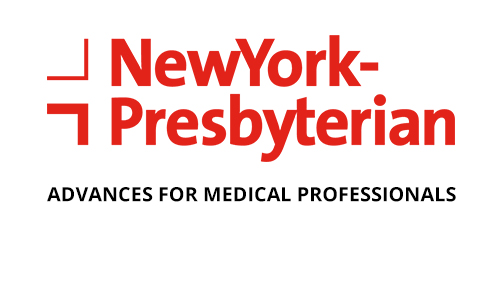A Meeting of Minds and Hearts on Behalf of Older Adults
Rapidly aging populations are challenging healthcare providers and systems across the globe. According to the World Health Organization, in 2010, an estimated 524 million people were age 65 or older — 8 percent of the world’s population. By 2050, this number is expected to nearly triple to about 1.5 billion, representing 16 percent of the world’s population.
“We were pleased to offer our content knowledge and clinical acumen on topics so important to consider in caring for the aging population.”
— Dr. Evelyn C. Granieri
Sharing their perspectives on this emerging and important issue, clinicians from NewYork-Presbyterian recently took part in the 16th Hallym-Columbia-Cornell-NYP International Symposium on the Importance and Advances in Geriatric Medicine and Surgery in the Republic of Korea. The symposium, which was held at Hallym University Dongtan Sacred Heart Hospital in Seoul, Korea, on April 22, attracted nearly 200 participants, including physicians from Korea and around the world.

Columbia faculty attending the symposium included (seated) Dr. Mark A. Hardy (third from left), Dr. Herbert Pardes, Dr. Evelyn C. Granieri, and Dr. Bret R. Rutherford (fifth, sixth, and seventh from left), and Dr. Jose A. Luchsinger (standing, third from left).

Dr. Herbert Pardes
Evelyn C. Granieri, MD, MPH, MSEd, Chief of the Division of Geriatric Medicine and Aging at NewYork-Presbyterian/
“We were pleased to offer our content knowledge and clinical acumen on topics so important to consider in caring for the aging population,” says Dr. Granieri, a renowned educator who regularly speaks to clinicians in geriatric forums around the world.
The symposium, comprised of four sessions with 11 lectures, began with an address from Dr. Pardes, a nationally recognized expert in education, research, clinical care, and health policy, who spoke on Healthcare Policy for the Aging Population. “Older people, by virtue of their age, experience far more healthcare challenges than the rest of the population,” noted Dr. Pardes. “When people have to retire because of strict age limits, it often creates a crisis of their own feelings of adequacy and loss of value to others and to society. How to deal with this wide roster of issues is an important point of discussion for all countries. Providing opportunities for services to contribute to society through part-time work and volunteerism, for example, can make the biggest difference in the lives of older people.”
While attending the symposium, Dr. Pardes was presented with an Honorary Doctorate of Philosophy by Dr. Dai-Won Yoon, Chairman of the Ilsong Educational Foundation, for a lifetime of accomplishments and contributions to society.
Dr. Granieri, who has particular expertise in advocacy and the interdisciplinary care of frail and vulnerable older adults, discussed practical considerations in the care of this population, outlining through consensus and research studies the steps clinicians can take to meet their often complex needs and requirements.

The Columbia team meets with a faculty member from Hallym University Dongtan Sacred Heart Hospital
Dr. Hardy spoke on Geriatric Surgery: Making Surgery Safer in the Golden Years. “Historically, older age was associated with poorer outcomes after surgical interventions, both in regard to postoperative complications and survival,” he said. “More recently patient evaluations have focused on the comprehensive geriatric assessment, which includes functional and nutritional status, as well as cognition, emotional evaluations, and assessment for geriatric syndromes of delirium, dementia, risk of fall, and failure to thrive.”
Dr. Hardy emphasized that the progress in anesthesia and in surgical technology with minimal laparoscopic and endovascular interventions has significantly improved surgical outcomes in the senior patients. He also noted that palliative surgery plays an important role in the treatment of elderly patients to alleviate symptoms, relieve pain, and improve quality of life.
Dr. Luchsinger, who is also Vice Chair for Clinical and Epidemiological Research at Columbia, presented Diabetes and Cognitive Impairment, explaining that the prevalence of diabetes, particularly type 2 diabetes, is increasing in geriatric populations worldwide as compared to younger age groups. “Cognitive impairment is more common in persons with diabetes as compared with people without diabetes,” said Dr. Luchsinger, noting that diabetes may increase the risk of cognitive impairment associated with aging, including Alzheimer’s disease and vascular dementias. He also reviewed evidence from epidemiologic and mechanistic studies that link diabetes and cognitive impairment and offered strategies for prevention and treatment.
An expert in the complex interplay between aging-related biological processes and the pathophysiology underlying psychiatric disorders, Dr. Rutherford spoke about Aging and Later Life Neuropsychiatry: Toward Precision Interventions to Improve the Health and Functioning of Older Adults. Discussing late-life depression, he noted, “Current research in geriatric psychiatry seeks to improve understanding of the role of biological aging processes in determining risk for late-life depression, its phenomenology and manner of clinical presentation, and promising novel therapeutic targets. By understanding at neurobiological, physiologic, and behavioral levels what makes depression in an older adult different from depression in a younger adult, we hope to delineate homogeneous subtypes of late-life depression that may be more therapeutically tractable and can inform the development of precision interventions.”
Overseas Collaborations Enhance Geriatric Care

Dr. Vitor Coutinho, Dr. Evelyn C. Granieri, and medical resident Dr. Nora Chen during Dr. Coutinho’s return visit to Columbia this past May.
In 2018, Vitor Coutinho, MD, a family medicine physician from Portugal, joined a group of international clinicians for a month-long rotation in geriatric medicine at NewYork-Presbyterian/
Dr. Coutinho’s primary care practice encompasses some 2,000 patients, 40 percent of which are older than 60 years of age. “In Portugal, we have a large public investment in healthcare,” says Dr. Coutinho. “And while there is competence in geriatric medicine, there is no specialty within our Portuguese medical association. This is why I came to NewYork-Presbyterian – to learn more about caring for older adults.”
During his rotation, Dr. Coutinho observed the inpatient care of older adults at NewYork-Presbyterian Allen Hospital. “Dr. Granieri and the NewYork-Presbyterian doctors do a wonderful job of caring for patients with humanity,” he says. “It’s extremely important to care for their heart and lungs, but it’s also important for them to live in their homes and realize their dreams at the end of their lives.” Seeking to share with his colleagues at home this holistic approach to geriatric medicine, Dr. Coutinho invited Dr. Granieri to address physicians at medical centers throughout Portugal this past spring. Dr. Granieri, in turn, invited Dr. Coutinho to speak to the Division of Geriatric Medicine at Columbia in May.
“I admire Dr. Granieri for what she is doing and for helping us to change the way we think about delivering care, not only in a biological way, but to help people become stronger and healthier, and especially, happier,” says Dr. Coutinho. “There is a Portuguese word that essentially means ‘care, rededication, and humanity with heart.’ Delivering care with love.”
Read More
Kang J, Martelli D, Vashista V, Martinez-Hernandez I, Kim H, Agrawal SK. Robot-driven downward pelvic pull to improve crouch gait in children with cerebral palsy. Science Robotics. 26 Jul 2017: Vol. 2, Issue 8, eaan2634.
Related Publications

Engaging Older Adults in the Digital Age








